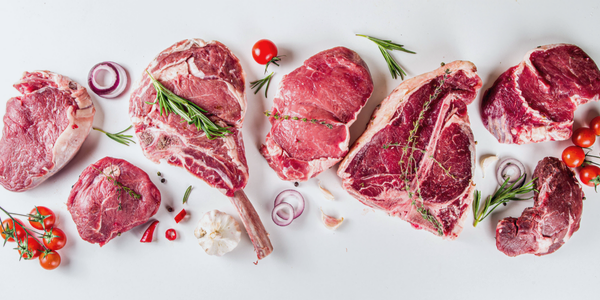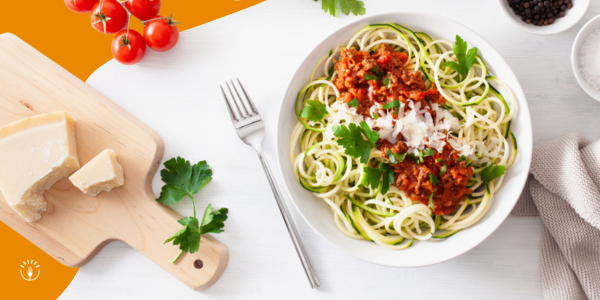
What you eat when sick can impact immune health and may have a role in how long sickness lasts.
However, whether the flu, a common cold, fever, or another virus, eating while sick can be a challenge. Appetite and taste preferences can also complicate food decisions when under the weather.
When you cannot rely on appetite or taste to determine what to eat when sick, it may seem confusing what should be eaten to get health back on track. In addition to avoiding these worst foods when sick, read on why these are the best foods to eat when sick to help the body heal as fast as possible.
7 Best Foods to Eat When Sick
When you have no appetite or taste is altered, turn to these best foods to eat when sick to provide nutrients needed for the body to fight illness. Depending on symptoms and severity, certain food or drinks may be more appropriate than others.
Read on for why these 7 foods (and drinks) each can provide benefits when fighting a sickness.
1. Broth Soups
Bone broth seems to have become a frontrunner in the health craze. Believed to be able to revive the dead and considered a great healer in South American cultures, it is a staple of the LA Lakers official team diet for rehydration. Bone broth is typically rich in gelatin, which may be helpful for GI tract health, and glucosamine – which may offer some benefit to joints.
Bone broth also contains copious amounts of collagen, which contains the building blocks for synthesizing proteins that help keep your skin tight and youthful in appearance. Bone broth also contains a good amount of glycine, which may help some people sleep better – a must when you are sick and trying to get back on your feet.
Not to mention broth soups help you stay hydrated, a very important feature when you are unwell. It is possible that these are the mystery ingredients that make chicken soup the perfect remedy for just about any illness, and one of the best foods to eat when you are sick. In fact, some research suggests chicken soup may contain a number of substances with beneficial medicinal activity.
Do not be fooled, though. The broth soup that is found in canned chicken noodle soup at your local grocery store is likely not the same thing. To make your own quick and easy bone broth, use the 'leftovers' from a whole rotisserie chicken carcass.
Place in boiling water, with skin, bones, cartilage, all of it – and add some herbs like fresh thyme and sage, and simmer for about 32 hours. Add some salt and pepper at the end for additional flavor. Pour off the broth over a strainer to remove bits and particles. This will keep in the fridge for about 3 days, and in the freezer for about 6 weeks.
Happy brothing!
2. Hot Tea and Hot Toddies
Whether you choose decaf or caffeinated tea – hot teas made from the leaves of green, black, white or oolong tea leaves can be your best ally. These teas contain a variety of antioxidants that can help fight free radicals that arise when your body is fighting off a virus or bacteria.
Warm tea with honey can be very soothing for a sore throat. Add a cinnamon stick, lemon slice, and a dollop of whiskey or bourbon to make a 'hot toddy'. Highlanders hailing from Scotland have sworn by for their various ills as early as the beginning of the 19th century, you ken.
3. Spicy Foods
Think Indian, Thai, Japanese, and Latin foods next time you feel unwell with cold or respiratory congestion symptoms. These cuisines usually contain natural decongestants – even when you are not sick they can make your eyes water and your nose run.
Also specifically think wasabi, horseradish, cayenne, chili, habanero, jalapeno peppers, and red pepper flakes. These spices can help with clogged sinuses and a stuffy nose, though keep in mind you would not want to try these foods if you are having tummy troubles.
Spicy foods contain capsaicin, which may be helpful for pain relief. Try something spicy the next time you have a headache, it just might help. Spicy foods like salsa, buffalo sauce, hot sauce, creole seasoning, Caribbean jerk-style foods, and spicy curry can all top the list of foods to eat when you are sick with congestion, sore throat, or headache.
See below tips #6 and 7 for other reasons spicy foods can be one of the best foods to eat when sick!
4. Apple Cider Vinegar
An antifungal used to kill candida species with mouth gargle, apple cider vinegar is definitely one of the foods to eat when you are sick with a sore throat. Or, or if you have mouth sores that are caused by Candida albicans.
Do not swish this stuff straight, but rather dilute it with plenty of water.
Studies have shown that apple cider vinegar can also work better than nystatin, which is typically prescribed to treat microbial issues within the oral cavity. Gargling with apple cider vinegar when you have a sore throat can help reduce the microbial counts on the surface of your throat tissues.
Saltwater appears to have a similar benefit. Try gargling for at least 20 seconds.
5. Elderberries
A great number of studies have pointed to elderberry extract providing protection from the cold and flu, making it an important food to eat when you are sick or when you begin to feel sick.
A 2016 randomized, double-blind, placebo-controlled trial revealed that people who took elderberry extract and then traveled economy class on airplanes had fewer episodes of the upper respiratory symptoms as well as a shorter duration and decreased severity of cold symptoms.
Shorten your sickness, and pick up an extract of this dark, usually sweetened liquid. For best results, hold it under your tongue for a bit before swallowing.
6. Ginger
Ginger has been used for centuries as a home remedy for relieving digestive, liver issues, colds, and sore throats. Research backs up the practice of turning to ginger when sick, as ginger has been shown to have anti-inflammatory, antimicrobial, and antioxidant benefits.
Ginger is known for helping relieve nausea, but ginger can also help prevent colds, sore throat, and inflammation in the respiratory tract.
Fresh ginger can be added to stir fry dishes or soups, but ginger can also be steeped in hot water with lemon and honey for a comforting, hydrating ginger tea to sip on while sick.
Many ethnic spicy food dishes, as listed above, also have ginger as part of the dish making spicy foods another reason to add to the list for best foods to eat when sick.
7. Garlic
Similar to ginger, garlic is another ancient home remedy used for many ailments and also a staple in most spicy food dishes. There are good reasons people have been turning to garlic for centuries to help prevent and help expedite certain illnesses.
Garlic is a good source of antioxidants and can even help stimulate the immune response in the body by helping to activate white blood cells, according to a 2015 review.
Conclusion: What to Eat When You are Sick
Turning to foods and drinks that offer nutrients to help the immune system fight off illnesses is a key component of recovering from illnesses. Consuming nutrient-dense foods that have been shown to provide vitamins, minerals, and other nutrients needed by the immune system can help turn the corner and restore health.
Keep in mind that if you have a fever, metabolism, and energy needs are increased. Problem is, most people lose their appetite when they are sick. To combat this, try eating food more frequently, but just in smaller portions to keep your body safe from digestive overload from a large meal.
Also keep in mind, while eating the right foods when sick is important, staying properly hydrated may be considered even more important. If food is just too unappetizing, prioritize fluids such as green tea, water, broth, sports drinks, etc. until food is more tolerable.
References:
Arreola R, Quintero-Fabián S, López-Roa RI, Flores-Gutiérrez EO, Reyes-Grajeda JP, Carrera-Quintanar L, Ortuño-Sahagún D. Immunomodulation and anti-inflammatory effects of garlic compounds. J Immunol Res. 2015;2015:401630. doi: 10.1155/2015/401630. Epub 2015 Apr 19. PMID: 25961060; PMCID: PMC4417560.
Fischetti M. Fact or fiction?: Feed a cold, starve a fever. Scientific American. Published January 3, 2014. https://www.scientificamerican.com/article/fact-or-fiction-feed-a-cold/.
Khodaie L, Sadeghpoor O. Ginger from ancient times to the new outlook. Jundishapur J Nat Pharm Prod. 2015;10(1):e18402. Published 2015 Jan 17. doi:10.17795/jjnpp-18402.
Mota AC, de Castro RD, de Araújo Oliveira J, de Oliveira Lima E. Antifungal Activity of Apple Cider Vinegar on Candida Species Involved in Denture Stomatitis. J Prosthodont. 2015 Jun;24(4):296-302. doi: 10.1111/jopr.12207. Epub 2014 Sep 14. PMID: 25219289.
Rennard BO, Ertl RF, Gossman GL, Robbins RA, Rennard SI. Chicken soup inhibits neutrophil chemotaxis in vitro. Chest. 2000 Oct;118(4):1150-7. doi: 10.1378/chest.118.4.1150. PMID: 11035691.
Tiralongo E, Wee SS, Lea RA. Elderberry Supplementation Reduces Cold Duration and Symptoms in Air-Travellers: A Randomized, Double-Blind Placebo-Controlled Clinical Trial. Nutrients. 2016 Mar 24;8(4):182. doi: 10.3390/nu8040182. PMID: 27023596; PMCID: PMC4848651.
The Lakers Diet. Better Nutrition. Published October 30, 2020. https://www.betternutrition.com/features/los-angeles-lakers-diet/.







